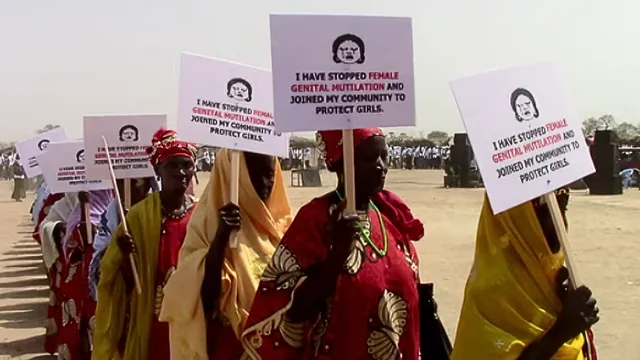
The Gambian parliament will on Monday discuss whether to consider or throw out a bill that is seeking to reverse the ban on female genital mutilation (FGM).
If the legislators agree to consider it, the bill will be taken through a committee for further scrutiny.
The bill was introduced to parliament earlier this month by independent lawmaker Almammeh Gibba, who said it sought to “uphold religious purity and safeguard cultural norms and values”.
Though FGM was criminalised in The Gambia in 2015, some seek to overturn the ban claiming that it violates religious freedom and is against the country’s cultural practices.
But local and international human rights groups are urging lawmakers not to consider the bill, saying decriminalising FGM would endanger girls and women.
Over 73% of women and girls aged between 15 and 49 have undergone some form of FGM in The Gambia, which ranks among the top 10 African countries where FGM is prevalent, according to the UN.
The FGM rate drops to 46% among girls aged 14 and younger, according to Unicef.
Only two cases have been prosecuted and one conviction secured since The Gambia’s FGM ban in 2015, human rights group Amnesty International says.

